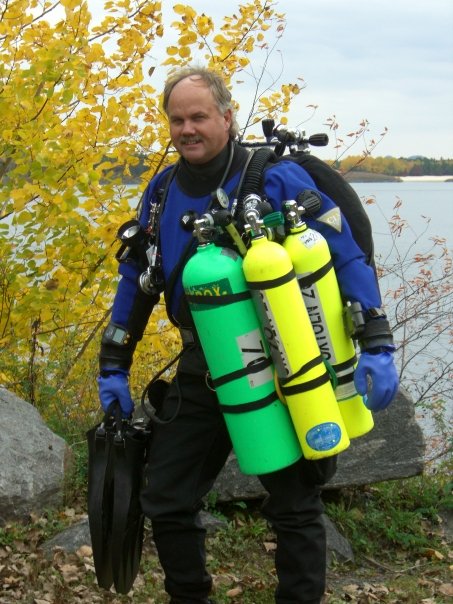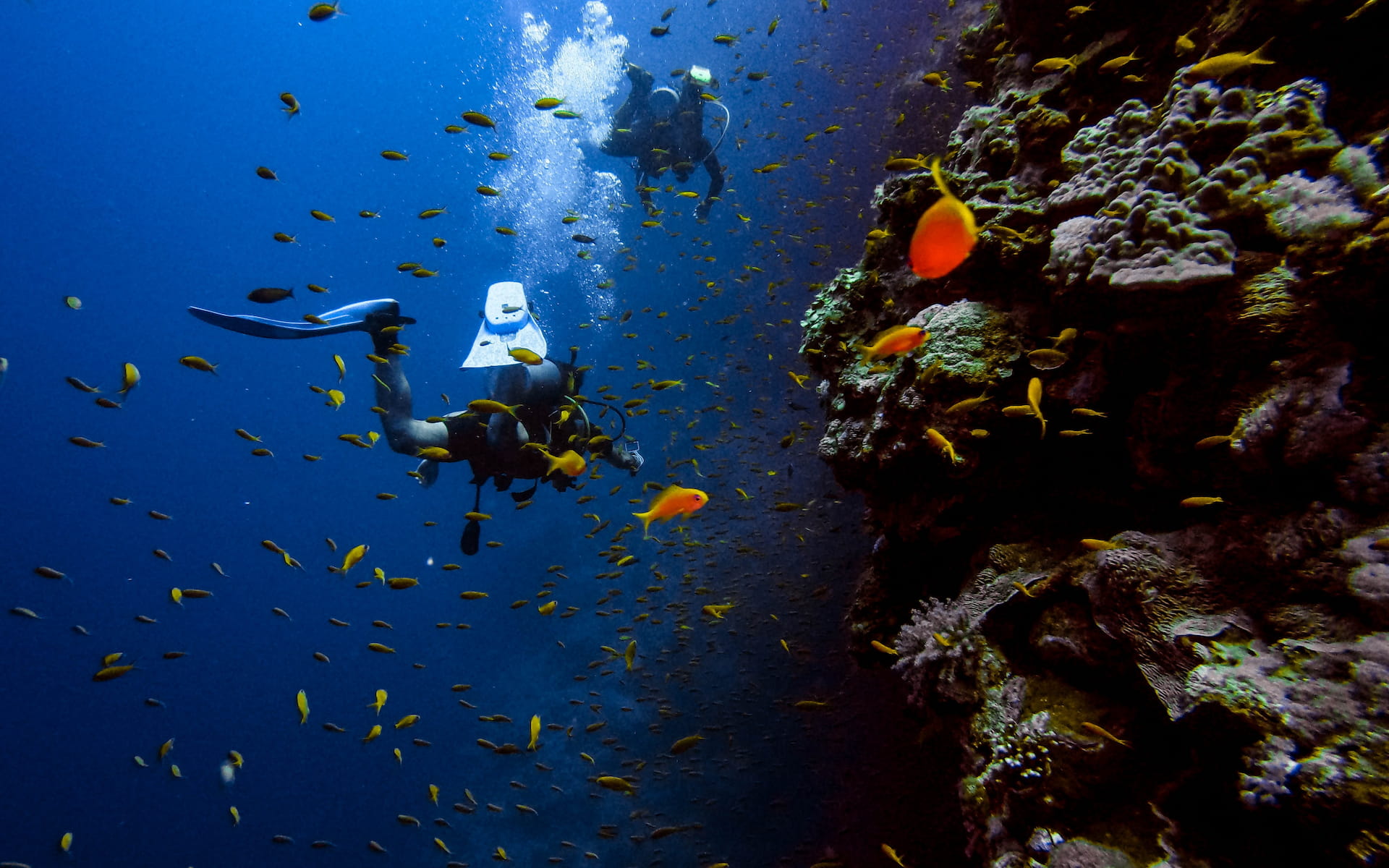About us
Keith has been training divers for 25 years and offers PADI, SDI, TDI and ERDI courses. He ’s an Instructor Trainer through TDI Advanced Tri Mix, SDI Instructor and ERDI Instructor. He holds 5 Dive Rescue International certifications and is an Instructor Trainer for Emergency Response Diving International offering 10 different courses to Public Safety Divers.
Whether you want your initial certification, or advance your technical skills, we have the expertise to take your diving to the next level.

What are you waiting for? Start your adventures in scuba with us today!
Courses
Recreational Scuba Diving
Recreational scuba diving can be described as diving only to prescribed depths of no more than 130 feet, eliminating the need for a decompression. Compressed air is used.
Every diver will need to go through an Open Water course to start their diving career. From there you can further your curiosity and skills with Technical Diving, Public Safety Diving and specialties like cave diving, dry suit diving etc.
Classes Offered
- Discover Scuba
- SDI Open Water
- Advanced Adventure Diver
- PADI Divemaster
- SDI Assistant Instructor
- SDI Emergency First Response
- SDI Instructor
- SDI Rescue Diving
- SDI Solo Diver
- SDI TDI Divemaster
Specialty Classes Offered
- Deep Diver
- Dry Suit Diver
- Emergency First Response
- Equipment Specialist
- Full Face Mask Diver
- Ice Diver
- Night-Limited Visibility Diver
- SDI Wreck Diving Course
- Search & Recovery Diver
- Solo Diver Course
- Underwater Navigation
Technical Diving
Tec, Tech, Tek, Technical Diving…no matter the name used, all it means is diving beyond the conventional parameters of recreational diving. Tech Diving requires dive experience, advanced training, special equipment and often uses mixed gases/enriched air beyond normal air.
Technical Diving is challenging, but also more rewarding. The majority of divers dive for recreational purposes but the skills and advancement into tech diving, you can experience longer, deeper dives, and explore parts of the ocean others cannot. Think shipwrecks, entering caves, or extensive coral reefs for example.
Offered Courses
- TDI Advanced Gas Blender
- TDI Decompression Procedures
- TDI Entry Level Trimix
- TDI Intro to Technical Diving
- TDI Nitrox Gas Blender
- TDI O2 Service Technician
- TDI On-line Basic Nitrox Diver
- TDI Advanced Nitrox & Deco
- TDI Advanced Trimix
- TDI HOG Regulator Servicing
Public Safety Diving
Public Safety diving is best described as underwater rescue, underwater recovery and underwater investigation conducted by divers working for or under the authority of municipal, state or federal agencies.
These divers are typically members of police departments, sheriff’s offices, fire rescue agencies, search and rescue teams or providers of emergency medical services. Public Safety Divers can also be non-paid volunteers.
Offered Courses
- ERDI Full Face Mask Ops Certification
- ERDI Ice Diver Ops Certification
- ERDI Instructor Certification
- ERDI Surface Ice Rescue Certification
- ERDI Tender Certification
- ERDI UW Crime Investigation Ops Certification
- ERDI-I Certification
- ERDI-II Certification
- ERDI Swift Water
- ERDI Contaminated Water Diving
Technical Diving
Tec, Tech, Tek, Technical Diving…no matter the name used, all it means is diving beyond the conventional parameters of recreational diving. Tech Diving requires dive experience, advanced training, special equipment and often uses mixed gases/enriched air beyond normal air.
Technical Diving is challenging, but also more rewarding. The majority of divers dive for recreational purposes but the skills and advancement into tech diving, you can experience longer, deeper dives, and explore parts of the ocean others cannot. Think shipwrecks, entering caves, or extensive coral reefs for example.
Offered Courses
- TDI Advanced Gas Blender
- TDI Decompression Procedures
- TDI Entry Level Trimix
- TDI Intro to Technical Diving
- TDI Nitrox Gas Blender
- TDI O2 Service Technician
- TDI On-line Basic Nitrox Diver
- TDI Advanced Nitrox & Deco
- TDI Advanced Trimix
- TDI HOG Regulator Servicing
Contact us
Wazee Sports Center LLC
- W11099 Clark Rd. Black River Falls, WI 54615
- 715-896-0726
- www.bruceslegacy.com
- keith@bruceslegacy.com
- Air fills by appointment only
